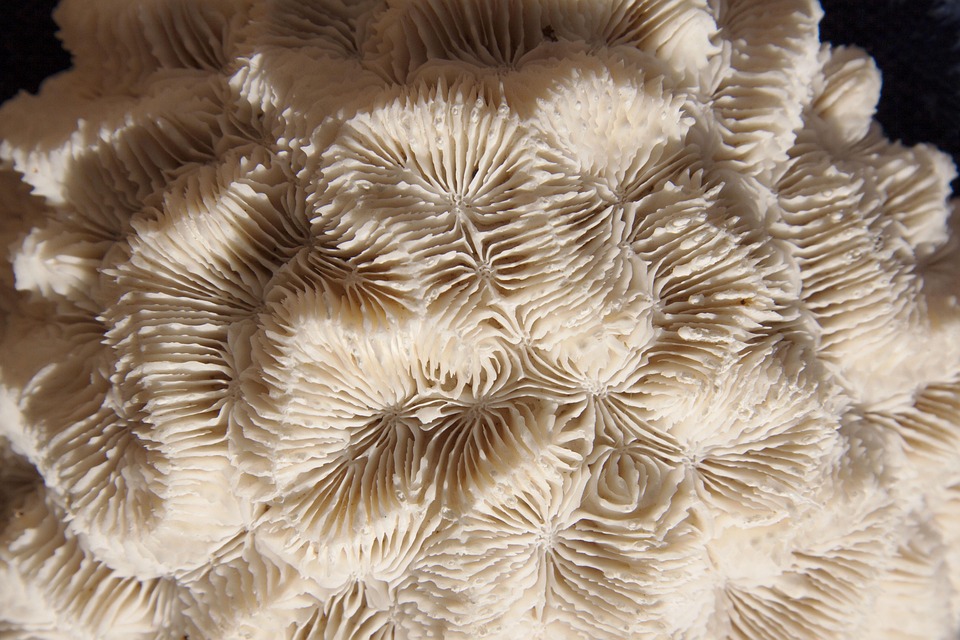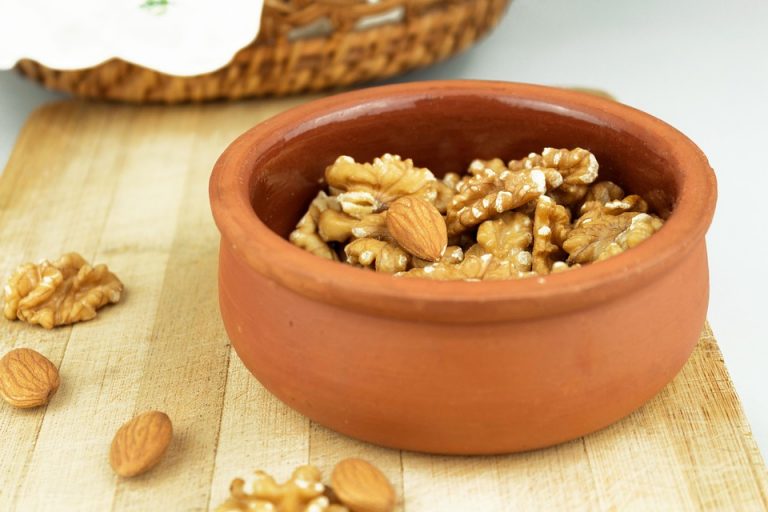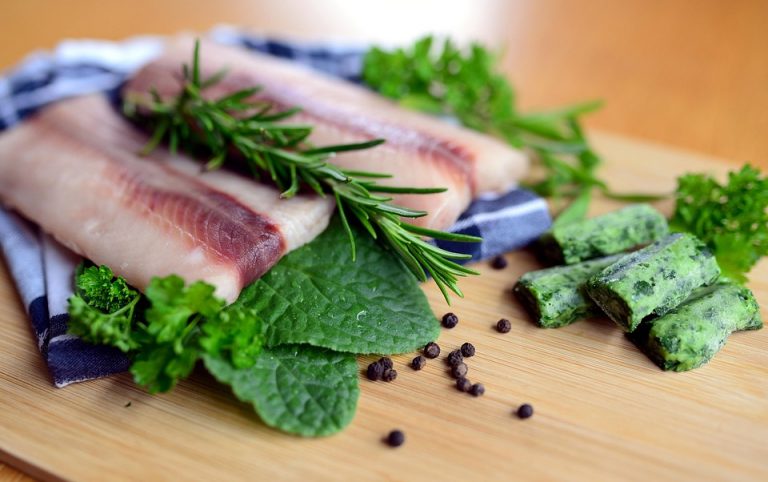Contents
Brain Memory Herbs: 7 Powerful Plants To Boost Your Recall
Brain memory herbs are botanicals used to support cognition, recall, and mental clarity. They matter because forgetfulness chips away at confidence, work, and joy—and herbs offer approachable, time-tested ways to shore up your brain. These plants aren’t magic, but they work on real biology: circulation, neurotransmitters, inflammation, and nerve growth. Read on for seven reliable herbs, how they perform, safe ways to use them, and the science that backs the claims.
When I say brain memory herbs, I mean allies you can fold into daily life—teas, tinctures, oils, and standardized extracts. These allies help your brain hold onto what matters: names, appointments, recipes, and the stories you want to tell. I’ll give you quick how-tos, dosing guidance, and safety pointers so you can use them confidently.
Top 7 Brain Memory Herbs To Try
Ginkgo Biloba
Ginkgo improves blood flow to the brain, which matters when memory feels foggy. Multiple clinical trials have shown modest improvements in recall and processing speed for older adults, giving this herb a solid research foundation. Use standardized extracts (typically 24% flavone glycosides) and avoid high doses if you take blood thinners. As one of the most studied brain memory herbs, ginkgo blends ancient use with modern science.
Bacopa Monnieri
Bacopa, or Brahmi, is a classic for learning and long-term memory consolidation. Longer-term human trials report better retention and faster recall after regular use for several weeks. Expect a gentle, cumulative effect—this is a slow, steady performer. Bacopa ranks high among effective brain memory herbs for people learning new skills or studying for exams.
Rosemary
Rosemary exercises your brain in two helpful ways: aromatic cues and active compounds that support cognitive performance. Studies show that smelling rosemary essential oil can enhance prospective memory—remembering to do things in the future. Use fresh sprigs while studying, diffuse oil during focused work, or take standardized extracts. Rosemary is one of those brain memory herbs you can use fresh, as an essential oil, or in supplements.
Sage
Sage has a long reputation for sharpening the mind in European herbal traditions, and modern trials back up improvements in cognitive testing after sage extract. It inhibits enzymes that break down acetylcholine, a neurotransmitter central to memory and learning. Quality standardized sage extracts can deliver measurable benefits without needing large doses. When people ask for natural cognition support, sage appears on lists of respected brain memory herbs.
Turmeric (Curcumin)
Curcumin, the active compound in turmeric, targets inflammation and oxidative stress—two drivers of cognitive decline. Emerging research links curcumin to better attention and less buildup of harmful proteins in the brain, though high-quality formulations are critical for absorption. Pair curcumin with black pepper (piperine) or choose a liposomal form for peak uptake. Turmeric is a heavyweight among brain memory herbs because it addresses root causes of decline.
Lion’s Mane (Hericium erinaceus)
Lion’s mane mushroom stimulates nerve growth factor and supports neuronal repair and plasticity, which helps learning and mood. Human trials—even small ones—show improved cognition and reduced depressive symptoms in older adults after daily use. It’s gentle and fits easily into coffee, tea, or capsules. If you want a mushroom option, lion’s mane joins the list of potent brain memory herbs.
Gotu Kola
Gotu kola improves circulation and calms anxiety—two things that help memory in complementary ways. Traditional systems use it for clarity and longevity, and small human studies note improvements in cognitive function and speed. It’s pleasant as a tea or in tincture form and often combined with other supportive herbs. Gotu kola remains one of those understated brain memory herbs that deserves attention.
How Brain Memory Herbs Work
These plants help your brain through a handful of consistent mechanisms: improved blood flow, reduced inflammation, antioxidant protection, neurotransmitter support, and promotion of nerve growth. For example, ginkgo targets vascular flow while lion’s mane promotes nerve growth factor. When you choose brain memory herbs thoughtfully, you’re stacking small biological wins into real-life improvements. Think of it as gentle, cumulative support rather than an overnight transformation.
Safety And Interactions
Not every herb fits every body. Some brain memory herbs thin the blood, alter hormone pathways, or interact with antidepressants and other prescriptions. That’s why I say: treat herbs like medicine—verify interactions, start low, and check with your clinician if you have chronic health conditions. Pregnant and nursing women should be especially cautious and get personalized advice.
Dosage Guidelines
Start low and build slowly. For common guidance: ginkgo 120–240 mg daily (standardized), bacopa 300 mg with 50–55% bacosides, curcumin 500–1,000 mg with piperine for absorption, lion’s mane 500–1,000 mg daily. Keep a two-week to six-week trial window for most herbs to judge effect. Following dosing rules helps you get real benefits from brain memory herbs without surprises.
How To Choose Quality Products
Look for third-party testing, standardized extracts, and clear ingredient lists. University-backed studies typically use standardized preparations—mirror that in your supplement choices. Check for contaminants and prefer organic where possible because heavy metals and pesticides undermine any benefit. Quality matters, the right brain memory herbs in the right form make all the difference.
Simple Routines To Boost Recall
Make herbs part of habits that already support memory: good sleep, daily movement, stress management, and a nutrient-dense diet. Sleep helps consolidate memories; exercise raises brain-derived neurotrophic factor (BDNF); a Mediterranean-style diet feeds cells and keeps inflammation down. Use brain memory herbs as part of a broader plan rather than a standalone fix.
Turn support into ritual. Try morning lion’s mane coffee, midday bacopa with lunch, and an evening turmeric latte. Smell rosemary before studying or take sage on exam mornings. Small rituals with brain memory herbs signal your body and mind that focus matters, and habits stick longer than one-off doses.
Combining Herbs Safely
Some herbs play nicely together and can amplify benefits; others may overlap or cause trouble. Start one new herb at a time for three to four weeks so you can spot effects and side effects. If you’re on anticoagulants, avoid combining ginkgo with other blood-thinning substances. Thoughtful combinations of brain memory herbs can amplify benefits without extra risk when handled with care.
Real-Life Examples
I worked with a retired teacher who hated the way names slipped from her mind. She began a routine: daily bacopa, lion’s mane tea twice a week, and rosemary sprigs when she read. Within two months she noticed steadier recall and less anxiety about forgetting. She credited the careful use of brain memory herbs and consistent sleep for replacing sticky moments with regained confidence.
Practical Tips For Getting Started
- Start with one herb, use a standardized product, and keep a two- to three-week journal of changes in mood, sleep, and recall.
- Pair with sleep improvements and short daily walks to maximize benefit.
- Ask your clinician about interactions and consider bloodwork if you’re on complex medications.
- Don’t chase quick fixes; consistency wins with botanicals.
Bottom Line
Bottom Line: Brain memory herbs aren’t fantasy—they’re practical, research-informed tools that support memory when used thoughtfully. Choose quality, start gently, and fold herbs into habits that already support cognitive health. With patience, the cumulative effect can be real: sharper recall, steadier attention, and the freedom to trust your mind again.
I believe in small, sensible steps that fit into your life. Try one herb, keep a simple log, and notice how your brain responds.
FAQ
Which brain memory herbs work fastest?
Most herbs show cumulative benefits, so “fast” is relative. Rosemary and sage can produce quicker, short-term effects—especially aromatic rosemary for immediate focus—while bacopa and lion’s mane often need weeks to fully show benefits. Start with quick-acting options for short bursts and add longer-acting herbs for sustained gains.
Can I take multiple brain memory herbs at once?
Yes, but start with one and add others slowly. Combining, for example, lion’s mane with bacopa often makes sense—one supports nerve growth, the other supports neurotransmission. Always check interactions and avoid stacking herbs that share strong blood-thinning properties.
Are these herbs safe with prescription medications?
Some interact with medications. Ginkgo can increase bleeding risk and may interact with anticoagulants; herbs that affect neurotransmitters could interact with antidepressants. Always consult your healthcare provider before starting herbs if you’re on prescription medications.
How long before I’ll notice results?
Expect variable timelines: aromatic herbs like rosemary can offer immediate lift, bacopa and turmeric often need 4–12 weeks for reliable changes, and lion’s mane may take several weeks for cumulative effects. Track sleep, mood, and specific memory tests to gauge progress.
Where should I buy these herbs?
Choose reputable brands with third-party testing and standardized extracts. Look for clear ingredient labels, manufacturing transparency, and positive clinical trial backing for the specific formulation you buy.
—
References
National Center for Complementary and Integrative Health provides research-based information on herbal supplements and cognitive health (http://nccih.nih.gov).
PubMed hosts clinical trials and systematic reviews on ginkgo biloba, bacopa, and other cognitive herbs, offering peer-reviewed study details (http://pubmed.ncbi.nlm.nih.gov).
Harvard Health publishes accessible summaries on turmeric, curcumin, and brain health, explaining mechanisms and clinical trial findings (http://health.harvard.edu).
Mayo Clinic offers consumer-focused guidance about potential drug interactions and safety when using herbal supplements (http://mayoclinic.org).
World Health Organization discusses traditional medicine and safety considerations for botanical products used in healthcare (http://who.int).
Get Your FREE Natural Health Guide!
Subscribe now and receive our exclusive ebook packed with natural health tips, practical wellness advice, and easy lifestyle changes, delivered straight to your inbox.




